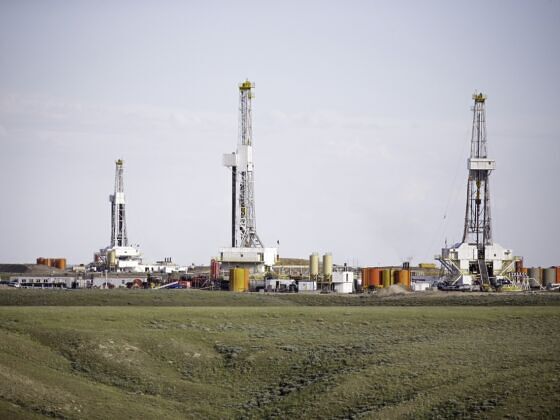That’s when I figured it was something that probably wasn’t that great.
Fracking (technically called hydraulic fracturing) is the process of extracting natural gas from the ground by injecting water, sand and/or 80-300 tons of radioactive chemicals into a pre-drilled well, which then fractures the shale and creates fissures that will allow the natural gas to be released. The problem is that people who live in the areas where fracking is taking place are getting sick and having problems with their water such as it being really dirty or people being able to actually set it on fire.
